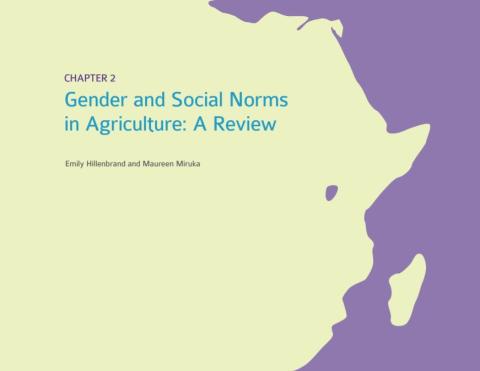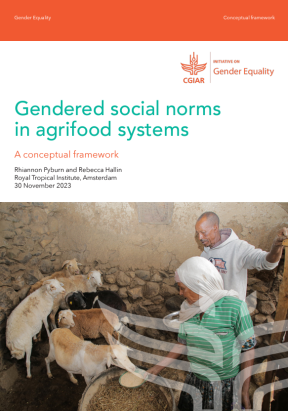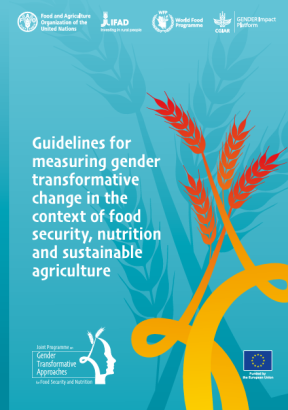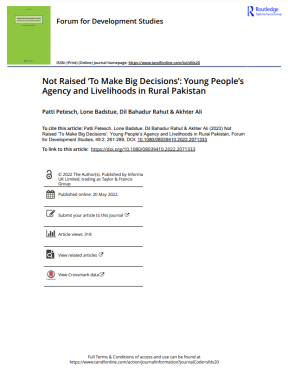- Book/Book chapter
- 31 janvier 2019
Gender and social norms in agriculture: A review
- Author: Emily Hillenbrand, Maureen Miruka
- Published by: International Food Policy Research Institute

There is a growing literature on gender norms—the unwritten, informal social rules that determine socially acceptable behaviour for men and women—and how they shape the possibilities for women’s empowerment. Research on social norms is moving beyond public health into other sectors, including agriculture, and there is growing interest in incorporating a social norms lens in policy models and strategies for women’s empowerment. In this chapter we review the current thinking around the gender dimensions of social norms and offer some examples of how gender norms influence and shape some of the key indicators of women’s empowerment in the agriculture sector. There is much to learn about how norms operate, how to change them, and how interventions can most strategically build on this understanding, particularly in agriculture. We first outline how different disciplines have approached social norms within the larger framework of behaviour-change models and how norms, as categories of collective beliefs, differ from and relate to attitudes and practices. We discuss how feminists frame gender norms in the goal of gender equality and present some of the growing literature from women’s economic empowerment programs on how entrenched gender norms broadly can hinder women’s economic gains. We discuss five common domains of gender norms that are applicable to agricultural programming across multiple contexts, including norms that shape skills, capacities, and self-confidence; norms that govern productive and reproductive work; norms that shape access and control over inputs, land, and productive resources; and norms that can limit women’s intrahousehold voice and influence. We also emphasise the context-specificity and inherent fluidity of gender norms, which shift in response to new opportunities as well as over the life cycle of men and women. Presenting some global evidence about what seems to work to support transformation of harmful norms, we conclude with reflections on the complexities, precautions, and ethical dimensions of integrating a social norms approach into women’s empowerment in agriculture programming.
- Tags:
- Agriculture
- Countries / Regions:
- Global
Related resources
Report
1 novembre 2023

Toolkit
2 octobre 2023

Journal article
20 juin 2022
